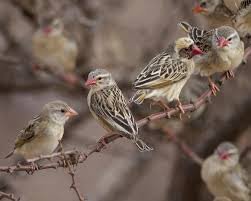Farmers in Umguza and Bubi farming districts, Matabeleland North province, Zimbabwe are failing to control a massive outbreak of quelea birds, feasting on their crops, mainly small grains, which are close to harvesting.
The invasion of the farmers’ crops, who are mostly small-scale growers, have resulted the producers now spending most of their time clanging metal objects and shouting at top of their voices in a desperate bid to save their crops.
“We are appealing to the government to do something before the birds destroy more crops. A lot of farmers in this area were last year contracted to grow small grains by a local company. Now this outbreak is going to leave a lot of farmers with a crop deficit,” Lavenda Ndlovu, a farmer in Bubi district, said.
Another farmer, Shylet Moyo, said she decided to try small grains after attending a farming workshop at the Zimbabwe International Trade Fair (ZITF) on growing the crops in 2020.
Bubi and Umuguza districts are semi-arid farming areas and crops such as maize are difficult to grow due low rain patterns
“After attending a workshop on small grains farming in 2020, I decided to venture into small grain farming. I have now realised that I made a mistake because the crop has got a lot of risks,” Moyo said.
“So far, I have lost almost a third of a hectare to the birds. Next season I will revert back to growing maize.”
The acting director of the migratory pest security department in the Agriculture Ministry, Shingirai Nyamutukwa said at a farmer’s winter wheat training workshop at Combe Farm in Zvimba district, Mashonaland West province that the issue of quelea birds was reaching a crisis level.
Nyamutukwa said the control of the birds was currently underway in Mashonaland Central, West, Manicaland and Matabeleland North provinces.
Quelea birds, whose population is estimated to be 1,8 billion in 25 countries, cause extensive damage to cereal grains, especially wheat, rice, barely, sorghum and millets when they reach the ripening stage.
Breeding occurs entirely outside the Highveld region and natural reserves starting in January after the rains and move in large numbers destroying entire field crops.








